Access to land: resources database
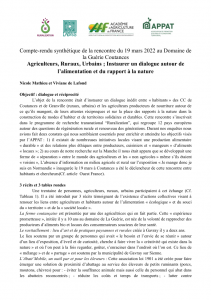
D5.2 Case studies and factsheets of 30 promising practices – Agriculteurs, Ruraux, Urbains ; Instaurer un dialogue autour de l’alimentation et du rapport à la nature
Section title: Agriculteurs, Ruraux, Urbains ; Instaurer un dialogue autour de l’alimentation et du rapport à la nature
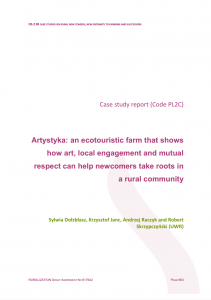
D5.2 Case studies and factsheets of 30 promising practices – Artystika: an ecotouristic farm (PL2C)
Section title: Artystika: an ecotouristic farm (PL2C)
Subsection: Case 2 C
Highlights: Artystyka is a an eco-touristic farm established in 2005 in the village of Nowa Bystrzyca (Poland) by a pair of newcomers from the city of Wroclaw just after their graduation from university. Given their background in Arts, they decided not only to renovate the farmhouse and set up a business, but also to try and take root by organizing art-related events directed towards both local residents and visitors from Wroclaw. The newcomers were successful in forging deep relationships with various members of the local community thanks to their ability to balance sincere respect for the local context with the introduction of new perspectives genuinely improving the communal life. As of now the hosts are focusing more on their family life and business operation but the case shows how the approach they took can help newcomers take roots in the new location by adopting a combination of respecting the local context and sharing their own values and perspectives.
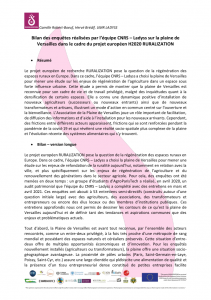
D5.2 Case studies and factsheets of 30 promising practices – Bilan des enquêtes réalisées par l’équipe CNRS
Section title: Bilan des enquêtes réalisées par l’équipe CNRS – Ladyss sur la plaine de Versailles dans le cadre du projet européen H2020 RURALIZATION
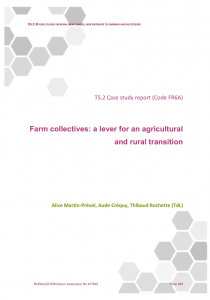
D5.2 Case studies and factsheets of 30 promising practices – Case FR6A – Farm collectives: a lever for an agricultural and rural transition
Section title: Case FR6A – Farm collectives: a lever for an agricultural and rural transition – 6A
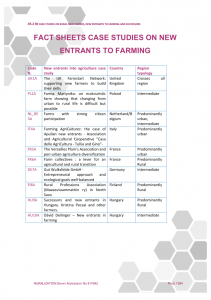
D5.2 Case studies and factsheets of 30 promising practices – Case studies on new entrants to farming
Section title: Case studies on new entrants to farming
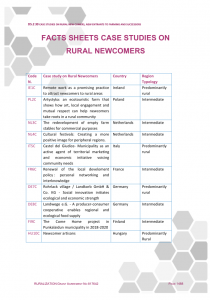
D5.2 Case studies and factsheets of 30 promising practices – Case studies on rural newcomers
Section title: Case studies on rural newcomers
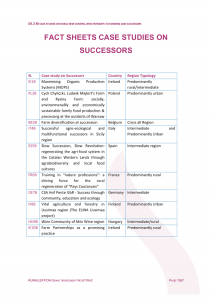
D5.2 Case studies and factsheets of 30 promising practices – Case studies on succession
Section title: Case studies on succession
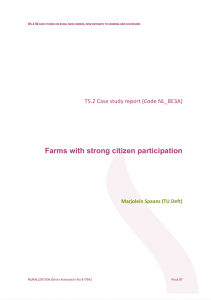
D5.2 Case studies and factsheets of 30 promising practices – Case study report ‘Farms with strong citizen participation in the Netherlands and Flanders’
Section title: Case study report ‘Farms with strong citizen participation in the Netherlands and Flanders’
Highlights: difficult to answer questions above as there are 2 subcase in 2 countries.
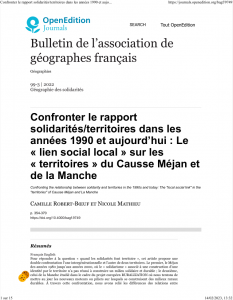
D5.2 Case studies and factsheets of 30 promising practices – Confronter le rapport solidarités/territoires dans les années 1990 et aujourd’hui
Section title: Confronter le rapport solidarités/territoires dans les années 1990 et aujourd’hui : Le « lien social local » sur les « territoires » du Causse Méjan et de la Manche
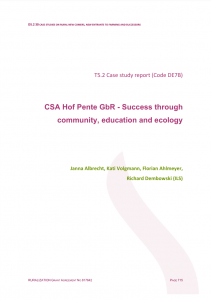
D5.2 Case studies and factsheets of 30 promising practices – CSA Hof Pente GbR – Success through community, education and ecology
Section title: DE7B: CSA Hof Pente GbR – Success through community, education and ecology
Highlights:
The case study shows the potential of Community-Supported Agriculture (CSA), if combined with agroecology and education / Highlights of the case are the educational activities and the connection of local networks with national and international networks of the CSA-community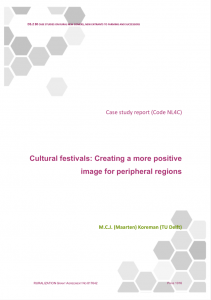
D5.2 Case studies and factsheets of 30 promising practices – Cultural festivals in a peripheral region (NL4C)
Section title: NC4: Cultural festivals in a peripheral region – 4C
Highlights:
1) Organising cultural events has a positive impact on a peripheral region.2) As it also depends on local developments and histories, and often is based on bottom-up initiatives, it is not easy to transfer this practice to other regions.
3) In the Oldambt area, some improvements could be made in terms of cooperation and promotion
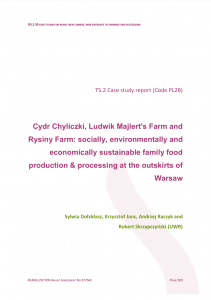
D5.2 Case studies and factsheets of 30 promising practices – Cydr Chyliczki (PL2B)
Section title: Cydr Chyliczki (PL2B)
Subsection: Case 2 B
Highlights:
The three family businesses described in this case are focusing on food production and processing: Cydr Chyliczki on apples and cider, and Ludwik Majlert’s Farm as well as Rysiny Farm on a variety of vegetables (and flowers as well as edible plant seedlings) that are then directly sold at the farms. The cases illustrate that family food production and processing has a siginificant potential for combining social, environmental and economic dimensions of sustainability by focusing on local, traditional, organic and high-quality products. In the case of Cydr Chyliczki, the main product is cider made of traditional appletree species from the region; the cider is a high-end product sold to restaurant and stores across Poland. Two other farms are integrating the supply chain by producing, processing and selling directly at the farm. Moreover, the farms provide social and cultural functions exemplified by e.g. the ‘dinner at the field’ events, tours for local schools and kindergartens and a small restaurant at the Rysiny farm – a de facto local community space.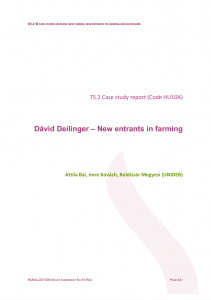
D5.2 Case studies and factsheets of 30 promising practices – David Deilinger – New entrants in farming
Section title: David Deilinger – New entrants in farming (HU10A) – Case 10A
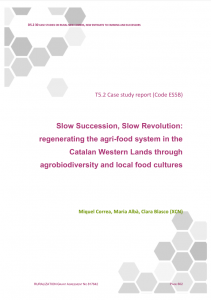
D5.2 Case studies and factsheets of 30 promising practices – ES5B Slow Succession, Slow Revolution
Section title: ES5B Slow Succession, Slow Revolution
Highlights: Diversification into ancient grains and goat species
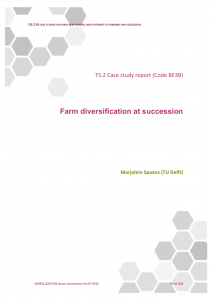
D5.2 Case studies and factsheets of 30 promising practices – Farm diversification at succession in Flanders (Belgium)
Section title: Case study report Farm diversification at succession in Flanders (Belgium) – 3B
